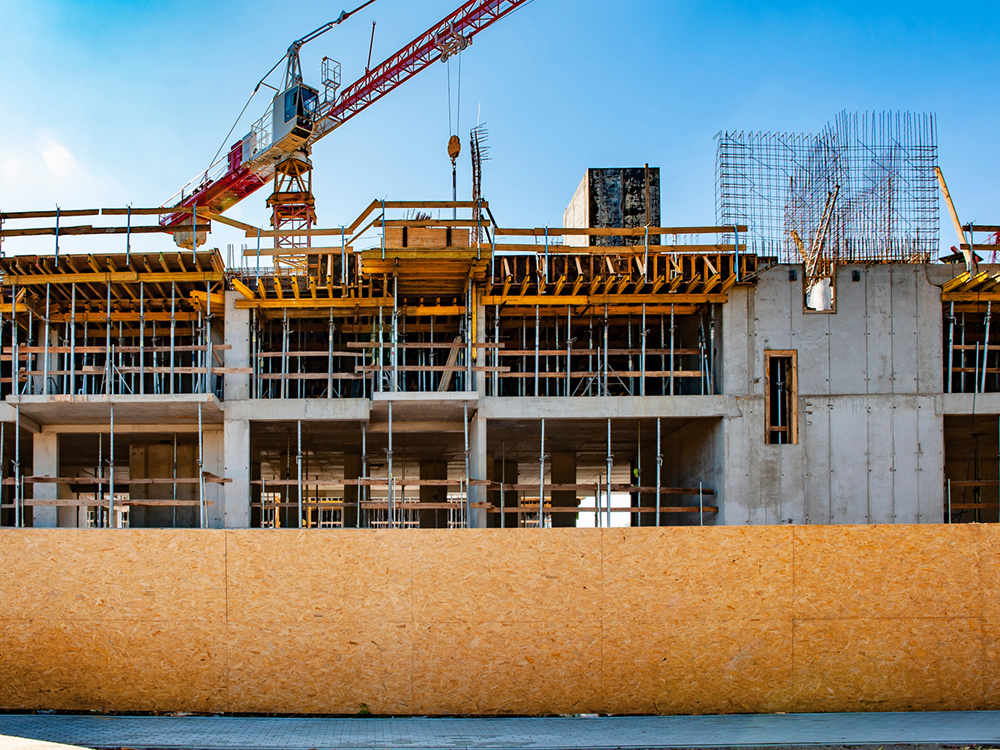During the 2022 municipal election race, one of the many campaign promises ABC Vancouver made was to double Vancouver’s 6,400 co-op housing units in four years.
Soon after the election, with both the mayor’s seat and seven out of 10 councillor seats held by ABC candidates, OneCity Coun. Christine Boyle introduced a motion that aligned with their pledge: fast-tracking approvals for future non-profit housing projects of up to 12 storeys.
The motion passed unanimously in early December 2022, a show of support for non-profit housing co-operatives managed by residents.
But ABC Coun. Sarah Kirby-Yung told The Tyee council is still waiting on an update from staff regarding the motion’s policy framework. As a result, new developments are not yet being fast-tracked.
Beyond Boyle’s motion, council has not done much else to pave the way for doubling co-op housing in Vancouver, said Thom Armstrong, CEO of the Co-operative Housing Federation of BC.
But that’s not surprising just one year into a four-year council term when almost half of the councillors and the mayor are new to the job, he said.
“We all knew that with such a turnover on council and a significant turnover at the staff level, as well, that it was probably going to take a full year before people really found their feet and got comfortable,” he said.
“This time next year, I’m not going to be as generous. I think we really need to put our collective foot on the gas in 2024.”
Kirby-Yung noted that over half of Vancouver’s 100 existing housing co-ops are on city-owned land, equivalent to roughly 3,700 co-op housing units. The key strategy for the city will focus on redeveloping existing co-ops, she told The Tyee, and offering up more city-owned land for new housing co-ops.
Despite ABC’s initial campaign pledge, the two-time city councillor declined to commit to a number of units the city plans to have at least started to develop by 2026.
“The one thing that we can control the most directly is how many additional units we can bring on stream on city-owned lands, through improving policy and plans,” Kirby-Yung said.
“The other ones, we can put the enabling practices in place. But it’s similar to rental housing: we can’t guarantee how many are going to actually be built by the private sector or by the non-profit partners.”
‘A lot of stars are aligning’
The city is already behind on a past promise to deliver new co-op housing units. In 2018, under then-mayor Gregor Robertson, the City of Vancouver announced seven city-owned sites to house over 1,000 new co-op housing units.
Six years later, four of those housing projects are in the construction stage, one has been completed and two are in the permitting stage because they are still waiting on necessary provincial or federal funding to keep housing charges lower than the market rate.
The city has also approached another six existing housing co-ops on city land about considering redeveloping when their operating agreements end. Housing co-op members vote on whether to approve a relocation plan, including what accommodations are made for members who have to leave, before embarking on redevelopment.
“There’s like 300 homes spread across the six sites, which [under the] zoning that might be available could hold about 3,000 homes,” Armstrong said. Those increases would depend on whether a co-op has a viable redevelopment plan and funding is available from senior levels of government, he added.
Kirby-Yung noted that redeveloping co-ops with leases of 30 years or more are subjected to the provincial property transfer tax, increasing redevelopment costs. She wants to see an exception made for housing created by non-profit developers.
“Similar to the conversation federally about waiving GST on purpose-built rental, is there an opportunity for trying to incentivize needed housing, at more affordability levels, to waive things like the provincial PTT?” she asked.
This year is expected to bring good news on both the redevelopment and construction of new housing co-ops, Armstrong said.
The Canadian government is set to soon unveil a co-op housing program that was promised in the 2022 federal budget.
The BC NDP recently made housing legislation and policy changes that increase allowable density in single-family-home neighbourhoods, add new money to build new housing and create a new fund to assist tenants and non-profit organizations to buy rental buildings to turn into housing co-ops.
“It seems like a lot of stars are aligning,” Armstrong said.
“We’re all on the edge of our seats right now,” he added, referring to the federal announcement.
Put money into housing, not policing: Hemingway
Alex Hemingway, senior economist and public finance policy analyst with the Canadian Centre for Policy Alternatives’ B.C. office, suggested municipalities can increase housing co-op unit numbers by making city-owned land available for co-op housing at below-market rates.
“It’s something we can do now, and quickly, and I think that’s useful,” Hemingway said, adding that cutting minimum parking requirements is another cost-cutting idea for developing new housing co-ops.
Kirby-Yung noted city-owned land has already been and will continue to be made available for co-op development. About $750 million worth of city land is being used for existing co-op housing units in Vancouver, she said.
She also said in the previous council she brought forward a motion to eliminate minimum parking requirements for new housing developments in downtown Vancouver. This was extended to the city’s West End and Broadway neighbourhoods in November.
“Vancouver is evolving on this,” Kirby-Yung said. “It does support affordability on specific housing types.”
Hemingway, who lives in a co-op considering redevelopment, said municipal governments could put cash directly into funding co-op housing development, either through expansion of existing housing co-ops during redevelopment or building new co-ops.
“There’s nothing stopping cities from funding non-market housing if, for example, they were to raise property taxes to contribute to those subsidies, or put more money towards public housing instead of increasing police budgets,” he said.
Despite increasing taxes 10.7 per cent last year and 7.5 per cent this year, Vancouver continues to have some of the lowest property taxes in North America, Hemingway said.
“We have extremely wealthy landowners that could chip in more to help do that subsidy at the city level,” he said.
The provincial and federal governments have deeper pockets and should “absolutely be stepping up with more contributions to non-market housing,” Hemingway added. “But cities can’t say that their hands are tied.”
But Kirby-Yung said raising property taxes won’t get the revenue needed. Based on city budget numbers for 2024, a five per cent property tax increase would produce $64 million.
Kirby-Yung said she would like to see a redesign of how housing co-ops operate for newer units.
Where once you would see upper government funding housing co-ops in the form of one-time grants or ongoing subsidies, that type of investment has all but dried up.
Instead, she envisions market and co-op housing unit combinations to subsidize housing charges for lower-income residents.
“If you look at False Creek South, for example, you have different tenure there. You have some social housing units, you have some that are rental, specifically, and you have some that are strata, where people actually purchase their units,” Kirby-Yung said.
Another alternative is basing housing charges — what co-op residents pay instead of rent — on members’ income level and using money from higher-income tenants to subsidize their lower-income neighbours, as was done in the city’s Moderate Income Rental Housing Pilot Program.
“I think that’s an interesting dimension of the co-op conversation that hasn’t really been fully explored at this point,” she said.
Another option for cities to add more co-op housing units is designating available municipal land for co-op housing development only, Armstrong suggested. “But I understand that’s a little tricky when everybody is lining up for that next site, because land is still scarce.”
Kirby-Yung does not support a pre-zoning of city-owned land for co-op units only, concerned that would preclude projects from including market rental and strata, as well as co-op, housing units.
Will Vancouver double its units in three years?
The high inflation rates of recent years have considerably widened the gap between construction costs and housing rates, narrowing the profit margins for developers, Hemingway said. “There’s just a danger in not getting projects off the ground in general, whether they’re market or non-market projects.”
However, Hemingway believes the City of Vancouver could reach its goal of doubling the number of co-op units by 2026.
It would be cheaper, Hemingway said, to build co-ops in less dense single-family-home areas, rather than the main arterials that both current and past city councils have focused on densifying.
“There’s an old political compromise in cities of ‘We’ll allow density in a few areas but preserve the low-density areas.’ That’s all being brought into question right now with provincial legislation, and I think that’s a very good thing,” Hemingway said.
Kirby-Yung noted many of the recently built and under-construction co-ops are located in those lower-density neighbourhoods, as are existing housing co-ops like those in Champlain Heights.
Armstrong, however, doesn’t believe the City of Vancouver will be able to double co-op housing units in three years.
Nevertheless, he is optimistic about the future of co-op housing in Vancouver.
“The goal has always been understood to be aspirational,” Armstrong said, a conclusion Kirby-Yung agreed with. “But there could be significant growth.” ![]()
Read more: Housing, Municipal Politics

















Tyee Commenting Guidelines
Comments that violate guidelines risk being deleted, and violations may result in a temporary or permanent user ban. Maintain the spirit of good conversation to stay in the discussion and be patient with moderators. Comments are reviewed regularly but not in real time.
Do:
Do not: